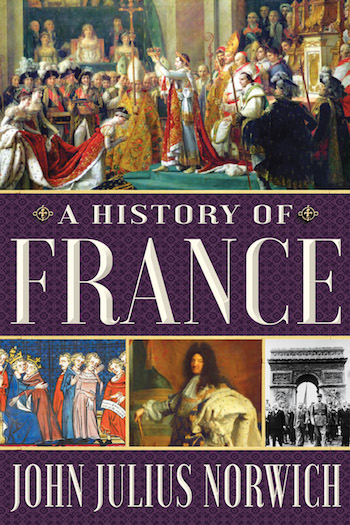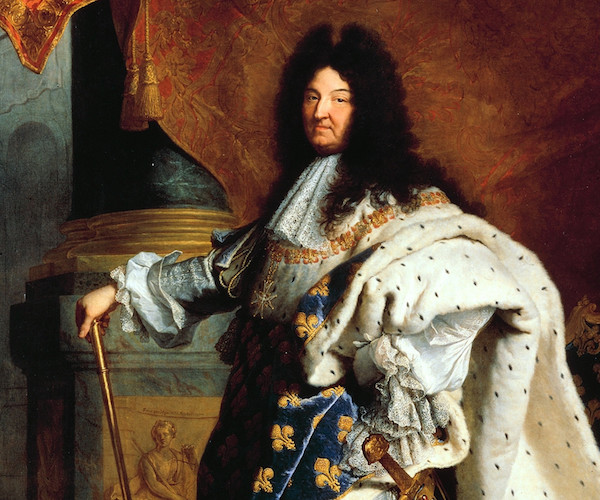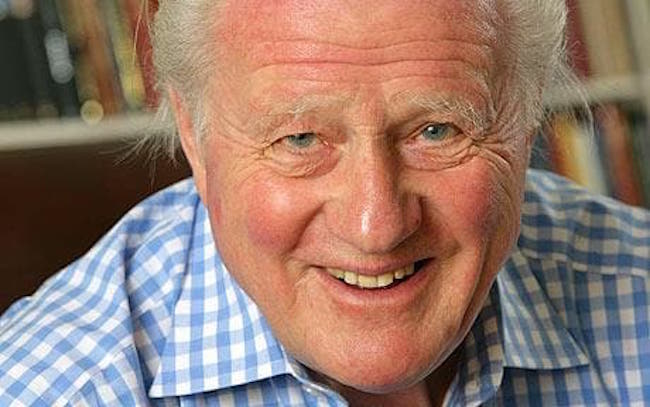Book Review: “A History of France” — Outsized Heroes on Horseback
In all of his books, John Julius Norwich remembered that history is a story.
A History of France by John Julius Norwich. Atlantic Monthly Press, 367 pp. $30.
By Thomas Filbin

The late John Julius Norwich’s books have been popular because of his consistent ability to thread a path between detailed scholarship and engaging storytelling. A diligent researcher, he nonetheless understood that writing for a general audience requires style and a sense of what to leave out as well as what to include. His last, A History of France, covers the period from Roman conquest to the end of the Second World War, focusing as much on France’s rulers as the country itself. He realized that often the force of the head of state’s personality reflects, and some say determines, the tenor of the times.
Roman Gaul was the product of Julius Caesar’s ambitions, although he justified it as a defensive ploy to protect Rome from the incursions of Gallic tribes. I remember as a schoolboy reading (in Latin) of the fate of their chief Vercingetorix after the conquest, who, despite his ceremonial surrender to Caesar, was brought back to Rome in chains and eventually paraded about like a captured animal and then killed. Perhaps the French memory of unpleasant invasions began here.
The rise of the Franks to form the greatest empire of the medieval period followed the Roman era. Charlemagne (all right, Karl der Grosse for those of you who hold the Franks to be Germanic rather than Gallic; in an aside Norwich says that he likely spoke a Rhenish Franconian dialect of Old High German) unified most of western Europe and set it on the road to civilization.
Norwich notes that Charlemagne “…in a little more than a generation, … raised the kingdom of the Franks from being just one of the many semi-tribal European states to a single political unit of vast extent, unparalleled since the days of imperial Rome.” The Carolingian Renaissance ended the Dark Ages, creating a system of law and governance, as well as schools and monasteries which were preserves and disseminators of learning.
The Middle Ages saw the rise of France as the largest military power in Europe and, from the Crusades to the dawn of the modern age, France served as an offset (in terms of a balance of power) to the Holy Roman Empire. Norwich offers as brief a description of The Hundred Years’ War as is possible. This long conflict between France and England revolved around settling claims and counterclaims of English kings to their former fiefs and French claims to overlordship. A highlight is the rise and fall of Joan of Arc, the only female hero in the book. Being burnt at the stake for heresy (and cross dressing) ended her unusual saga as a military leader, but eventually led to sainthood and status as an icon.

Louis XIV, the Sun King — an era all his own.
Louis XIV, the Sun King (1638-1715), was an era all of his own. The expansion of the military and wars of conquest and revenge, plus the building of Versailles, nearly drained the treasury, but they fed Louis’s ravenous hunger for glory. Sovereign and state were one in his famous exclamation “L’etat, c’est moi.”
Beyond conquests, palaces, and mistresses, however, Louis is known as a patron of the arts and theater; Racine, Moliere, Lully, and Couperin all lived in this golden age. The peasants suffered periodic famine but, in Louis’ mind, that was insignificant compared to the king’s eye view of what France was – grand, and all his.
The 18th and 19th centuries were times of turmoil. The biblical prediction that the sins of the fathers would be visited upon the sons proved correct. The execution of the hapless Louis XVI in January of 1793 wasn’t the result of his errors so much as the upshot of long indifference, over centuries, to the well-being of the people the Bourbons governed.
The revolution which ended the French monarchy is the grandfather of all republican revolutions afterward, although the bloody finale of it via The Terror put a crimp on things.
So many people went to the guillotine that it became clear that the revolution was devouring its own children. Pendulums change direction and Norwich observes that “It was probable that after the removal of Robespierre from the scene, there should be some dramatic swing to the right.” The move in this case was the end of democracy and the republic and the birth of the Napoleonic empire.

The late John Julius Norwich. Photo: Grove Atlantic.
Napoleon Bonaparte was the scourge of Europe, and indeed was considered the Hitler of his time, attacking and invading his neighbors and installing his relatives as princes under his imperial rule. But in his appraisal Norwich sees both sides of a coin: “…has any single man had a greater long-term impact on Europe?” His accomplishments include bringing post-revolutionary calm to France, maintaining food prices at low levels, opening schools, and establishing his own code of law, which remains the basis of French law and much of the rest of the continent.
The 20th century featured two wars, an occupation, resurgence, and status as a great power once again. DeGaulle is the hero of the last chapter. Despite some Gallic hubris and an inherently conservative Catholic (crypto-monarchistic, some would add) view of the world, he managed to unify French resistance and offer a return to normalcy. For all his arrogance (Churchill, Roosevelt, and Eisenhower considered him an enormous irritant), DeGaulle had the foresight to concentrate on France; he even gave up colonial control over places like Algeria and Vietnam when it was clear the game was over.
The writing of history is a delicate art; facts, data, epochs, and personalities conspire to make any historical account too cluttered with factoids to be readable. In all his books, Norwich remembers that history is a story. Chronicling a period without articulating the spirit of the age is no more than compiling information. He plainly accepts the “great man” theory of history (allowing for one woman), and focuses on a succession of outsized heroes on horseback, somehow coming out of the mists to turn the tide. This conventional interpretation has been attacked on many fronts, both its “great” and “man” components. It can be argued that leaders do not create an age, but typify it; to embody the spirit of the times is not the same thing as being its cause. And the skeptics have a point: the leaders Norwich chronicles seized their moment, but one does not need to be a Hegelian to believe the moment was coming on its own.
Thomas Filbin is a free lance writer whose work has appeared in the New York Times, the Boston Sunday Globe, and The Hudson Review.
Tagged: A History of France, Atlantic Monthly Press, John Julius Norwich
